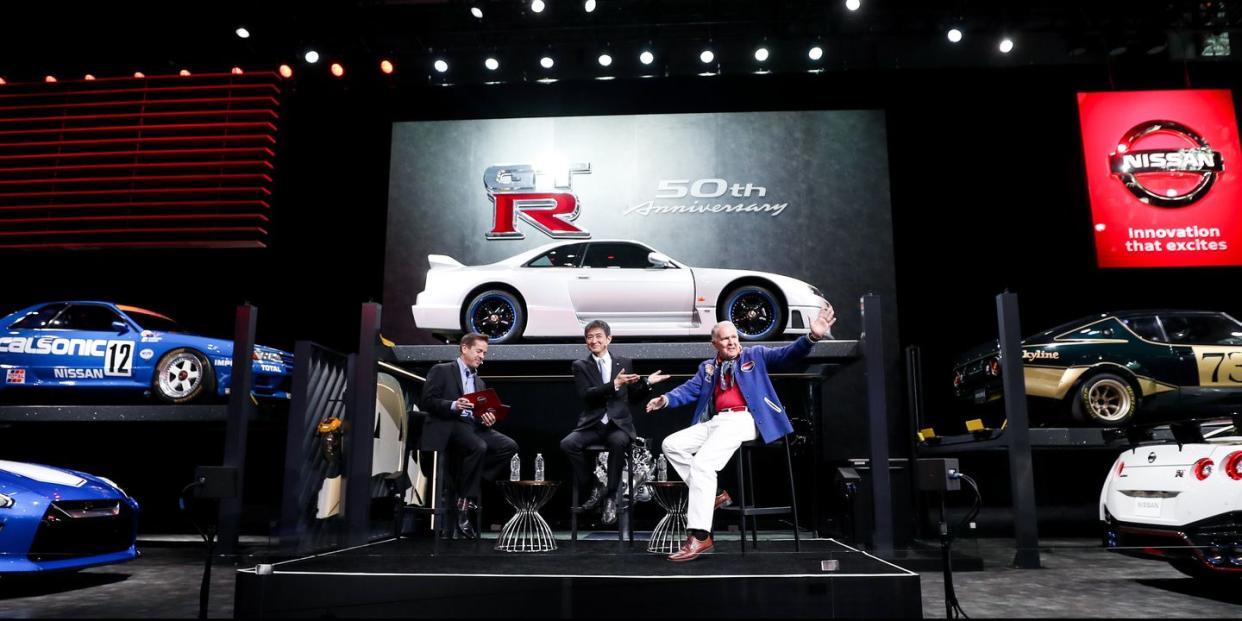Delta Variant of COVID-19 Forces Cancellation of New York Auto Show

Delta variant of COVID-19 forced organizers to cancel the NY Auto Show.
The 2020 show was canceled when the pandemic started, and then this year's show was postponed from its traditional spring date to summer.
Organizers are confident it will be back in 2022.
It looked for a while like the New York Auto Show was going to recover in 2021. Last year, along with Geneva, the NY show was one of the first casualties of the COVID-19 pandemic. Then it was postponed this year from its traditional spring date to Aug. 20-29 at the Jacob Javits Center in Manhattan. Now that the Delta variant of COVID-19 has hit The Big Apple, even the delayed version of the 2021 N.Y. show has gotten the ax.
“It is with great disappointment that the upcoming 2021 New York International Automobile Show at the Jacob K. Javits Convention Center has been canceled due to the growing incidences of the COVID-19 Delta variant and the increased measures announced recently by State and local officials to stop its spread,” said Mark Schienberg, president of the show.
The New York Auto Show was traditionally one of the biggest in the US, after Detroit and Los Angeles. It was perhaps on par with Chicago. But major auto shows have been losing their significance around the world. The grandaddy of them all, the IAA in Frankfurt, held every two years, has been moved to Munich and renamed a “mobility conference.” The Tokyo Motor Show, which had already been moved to a smaller venue after the recession and struggled commensurate with internal troubles in Japan related to the earthquake and tsunami of 2011, was canceled this year even though it had been scheduled for October.
The world in which car shows exist is changing, forcing automakers to redistribute marketing budgets that might have gone into a flashy auto show display. Gone are the days when Chrysler reportedly spent a million dollars to “leapfrog” a minivan over the heads of two executives, or crash an SUV through a plate glass window at the Detroit show. That money can be more effectively spent on targeted internet marketing that is more likely to reach specific buyers.
For decades before the internet became the all-powerful, easily trackable means to reach customers, carmakers relied on analog methods to make contact with buyers. In addition to ads in print publications, that meant a large and impressive stand at an auto show. The shows themselves consisted of two elements: the press days and the public days. Automakers would hold off on debuting important cars until an appropriately large auto show. Now, even if there is a debut at a show, the press presentations are more often held outside the show the night before, giving carmakers greater control over costs and message. The public days of a show are usually presented by auto show organizers as the best way for consumers to cross shop a number of brands. But much of car shopping nowadays takes place on the internet, where direct links to local dealers make for a quicker and more likely sale.
“Each year, attendees rely on auto shows to help make important buying decisions, spending an average of almost five hours at the exhibition, with nearly 72% of those visitors indicating that they are in the market to purchase a vehicle over the next 12 months,” said New York’s Schienberg. “We fully appreciate and acknowledge how important auto shows are to the automakers, retail new car and truck dealers and the public alike, and we strongly believe in the future of these valuable marketing events.”
But the tenacity of the COVID pandemic and the rise of the Delta variant of the disease were just too much for New York.
“The COVID pandemic has challenged our city, the country and the entire world, but just like the automobile industry, we know that the New York Auto Show will rebound and be bigger and better than before,” Schienberg said, with what can best be described as New York moxie, “We firmly believe that will be the case when the Show returns to its regular spring schedule in April 2022. Stay safe.”

